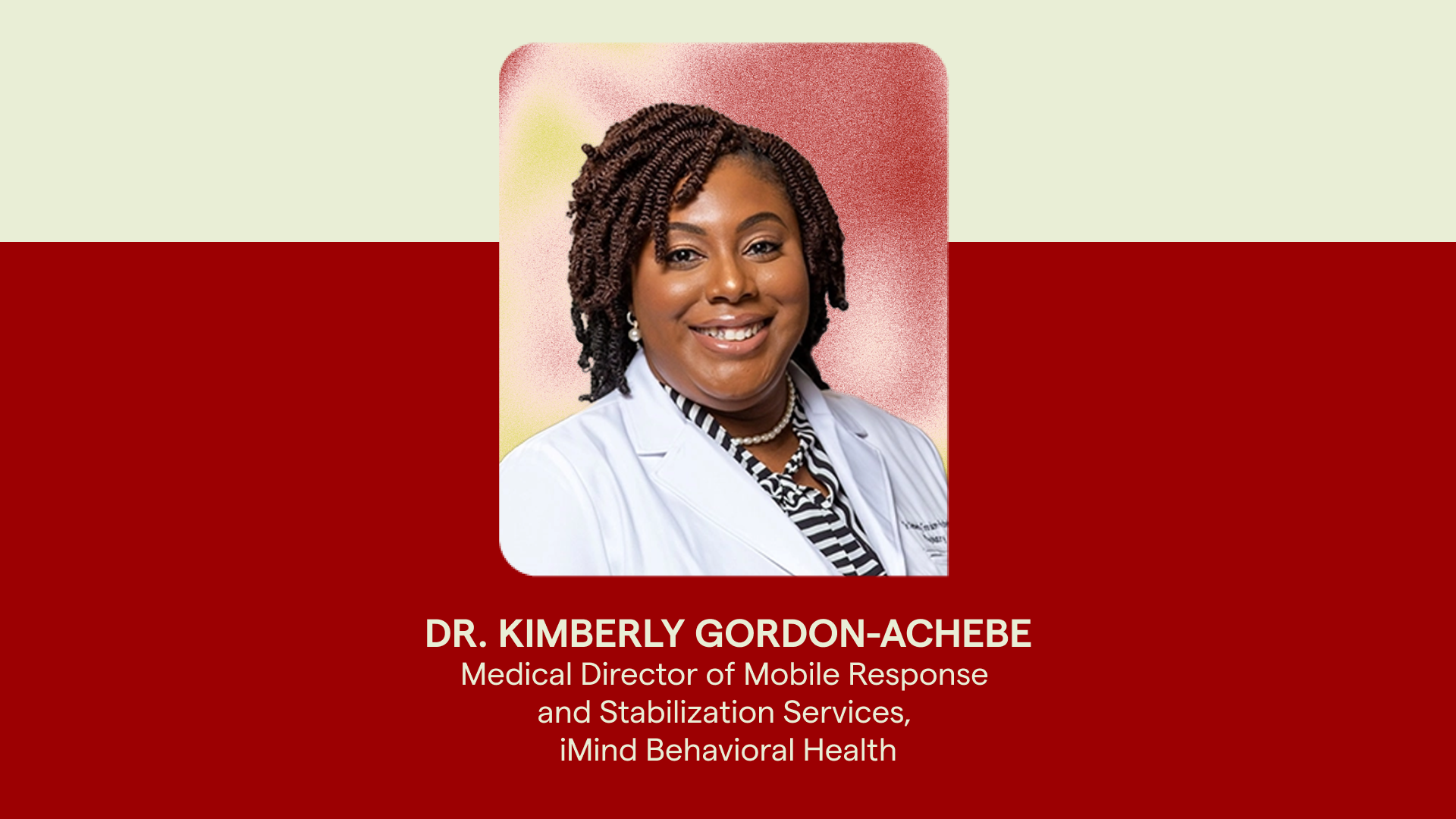
We often discuss the clinical value of Measurement-Based Care (MBC) for people in care, providers, and mental health leaders, sharing over 20 years of research demonstrating a higher overall improvement in clinical symptoms and therapeutic alliance, in addition to reduced drop-outs and no-shows rates.
But how do these benefits translate to total costs of mental and physical healthcare for an individual, as well as across entire health systems? And how can we help providers leverage evidence-based practices for mental health treatment in order to reduce overall healthcare costs? Dr. David Clark, the special guest of our last educational series, helped us answer this question through the outcome data collected through the NHS Talking Therapies program (originally referred to as IAPT) over the last 15 years.
The Benefits of Evidence-Based Psychological Treatments
To start answering these questions, Dr. Clark provided us with a couple statistics about mental health challenges and their relationship to physical health:
- 40% of people with anxiety & depression also have a long term physical health problem.
- The cost of managing physical conditions is about 50% higher when patients also have anxiety and depression.
The evidence shows that we can significantly reduce both mental and physical healthcare costs if we dedicate resources to improving treatment options for anxiety and depression, as well as their overall efficacy. There are three evidence-based examples that demonstrate the economic impact of mental health interventions, where mental health improvements have directly translated to overall healthcare cost savings:
1. The Impact of NHS Talking Therapies on Cardiovascular Disease
Dr. Clark shared a study conducted on 636 955 individuals with cardiovascular disease that were also receiving therapy to treat depression, with Measurement-Based Care at its core. The results showed that those who saw an improvement in depression symptoms had a 10-15% lower risk of Cardiovascular Disease.
These findings are particularly impactful when we consider the fact that Cardiovascular Disease is the leading global cause of death. The report outlines that the risk of cardiovascular issues is around 72% higher for individuals with major depressive disorders, compared to those without.
In addition to decreasing the occurrence of Cardiovascular Disease, a reduction in depressive symptoms was also associated with anywhere from 11-19% lower risks for coronary heart disease, stroke, and all-cause mortalities. Individuals in the 45 to 60 year-old range with improved depression had a 22% decreased likelihood of death during follow-up compared to those who had not improved, while those 60 and over had a 15% reduction. Additionally, the impact on the costs of care due to evidence-based psychological treatment is long lasting. Dr. Clark shared that those who recover have a reduced occurrence of any kind of future adverse cardiovascular events and relapse of their anxiety or depression.
The study reinforces the need for effective and accessible psychological treatments in order to drive improved outcomes for both mental and physical health challenges. There is a clear link between mental health outcomes and physical health, demonstrating the economic benefits of evidence-based psychological treatments, both for individuals and health systems.
2. The Impact of Psychological Treatment on Individuals in the Workplace
In Thrive: The Power of Evidence-Based Psychological Therapies, Dr. David Clark and economist Richard Layard present their arguments which catalyzed the creation of the NHS Talking Therapies program. The program had Measurement-Based Care as its foundation, to meaningfully improve outcomes, understand efficacy of services, and inform continuous service innovation. A significant part of their case rested on the impact of evidence-based care on individuals in the workplace, where the treatment of anxiety and depression would help to reduce unemployment, absenteeism, and presenteeism (when employees are at work, but unable to be their most productive).
In wealthy nations, mental illness makes up half of all illness in working-age people (45 and under). Not only is it the most prevalent illness in this age group, but almost half of all reported disability leave can be attributed to mental illness— in the US, it accounted for about 1/3 of those on disability, making a clear connection between unemployment and mental health.
Dr. Clark and Richard Layard argue that if this population was able to work, it would increase total employment by more than 4%, which has massive economic implications for both those individuals, taxpayers broadly, and the overall national output.
Not only are people living with mental illness or mental health challenges less likely to hold employment, those who are employed are often unable to be their most productive or are often out sick, known as presenteeism and absenteeism. Presenteeism refers to the lack of productivity attributed to those suffering from mental health challenges. When surveying people in the workplace, it was found that mental health related presenteeism accounts for similar levels of reduced output in comparison to absenteeism.
In the UK, it was estimated that the combined impact of presenteeism, absenteeism, and unemployment is a reduced national income (GDP) of about 7%. With this in mind, the economic benefits associated with enhancing the mental health of the workforce are extensive, both for the overall health of the population, healthcare costs and economic productivity.
3. The Economic Impact of Evidence-Based Mental Health Treatment
A recent economic evaluation conducted on data from 27,540 patients receiving mental health treatment through the NHS Talking Therapies program found that the main drivers of healthcare costs can be tied to wait times and the overall effectiveness of treatment.
Note: The authors of this study use quality-adjusted life years (QALYs) to measure the overall health and quality of life a person can expect to experience due to psychological interventions. QALYs take into account life expectancy and quality of life during that time. The researchers have determined that one quality-adjusted life year to be worth £20,000, meaning that if the psychological intervention used costs less than £20,000, it can be considered cost-effective.
Wait times
The delay from initial time of access to actual treatment resulted in increased healthcare costs due to patients accessing other healthcare services and costs associated with health-related quality of life. This was particularly true when dealing with more severe mental health challenges. You can see in the visualizations below the direct correlation between extensive wait times and both QALY and background costs, where waiting time plus treatment time that extended over 6 months results in cost increases of up to £1,000 for severe depression and up to around £750 for severe anxiety, per patient.
Treatment Effectiveness
Treatment effectiveness was also a key driver of the overall cost of mental healthcare services. Mental health symptom improvements were shown to have a positive impact on both background costs and QALY costs. The upper row of graphs below shows that when treatment services for depression were 20% less effective than average NHS Talking Therapies services, they were around £200 to £250 more costly per patient, depending on the severity of depression. As a comparison, treatment services for depression which were 20% more effective than average NHS Talking Therapies services were around £150 to £200+ less costly, depending on severity. When treating anxiety, the services which were 20% less effective were almost £300 more costly per patient for mild and moderate anxiety, while services 20% more effective had similar cost-effectiveness to those seen in depression treatment.
Where Measurement-Based Care comes in
The first and last example addressed above were drawn directly from NHS Talking Therapies outcome data, which represents the largest data set drawn from the use of Measurement-Based Care (MBC) in treatment. Since the launch of NHS Talking Therapies in 2008, their team has leveraged the outcome data generated by MBC to continually inform service innovation and improvements. These changes have resulted in a drastic improvement of service effectiveness, raising average recovery rates from 38% to 52% by 2018 (see graph below).

The key to this improvement was simple. They used the data to identify groups within the population that were not responding to treatment, uncovered similarities amongst them, and collaborated on service improvements and program innovations that could address their unique needs. As one example, after identifying that many patients not improving under IAPT were unemployed, they offered support from employment advisors (EA) alongside psychological therapy. The difference was notable, with 47% average recovery for those who received EA alongside psychotherapy vs. only 27% for those who did not.
Dr. David Clark, co-creator of NHS Talking Therapies, shared in our recent educational webinar that, “if we hadn’t been collecting outcome data on everyone in our services, we’d still be in that position [low recovery rates] and blissfully ignorant on what to do next”.
Not only does MBC help to enhance clinical decision making and strategic innovation, but evidence shows it improves outcomes, increases therapeutic alliance, and reduces drop-outs and no-shows, when compared to treatment as usual. The economic value, as well as mental/physical health benefits, and cost reductions are greatest when we implement an evidence-based and outcome-informed treatment practice that is proven to deliver superior clinical results.
The NHS Talking Therapies data makes it clear how imperative it is for healthcare systems and service organizations to focus on improving access to evidence-based psychological treatment options. This requires Measurement-Based Care to be at the foundation of the treatment process— as we know it will lead to improvement in care at an individual level, while providing powerful outcome-data to inform continuous service enhancement at the system-level. Not only will this drive better mental and physical health outcomes that lead to lower related healthcare costs, but organizations and health systems will be better equipped to understand the impact of services and how they can continually iterate and improve overtime.
Final thoughts
The insights shared by Dr. Clark make a direct case for the funding and advancement of evidence-based psychological treatments, and for the continued proliferation of Measurement-Based Care as a fundamental component of evidence-based practices. This direction is also supported by accreditors like the Joint Commission and the Mental Health Commission of Canada, both of which advocate for Measurement-Based Care as a foundational component of evidenced-based care. Years of research demonstrates the clinical benefits of Measurement-Based Care; we know it’s the right step for health systems and service organizations to take in order to best support the people they serve. What the outcome-data above shows is that incorporating MBC throughout any service is also the best thing we can do to improve overall health outcomes across populations and see a significant reduction of related healthcare costs.
To learn more from Dr. David Clark and hear his answers to some of the most pressing MBC questions, register for our next session with one of the leading minds in mental health service innovation and leading global expert on Measurement-Based Care (MBC).
Register now and submit your questions for Dr. Clark.
References:
- Catarino, A., Harper, S., Malcolm, R., Stainthorpe, A., Warren, G., Margoum, M., Hooper, J., Blackwell, A. D., & Welchman, A. E. (2023). Economic evaluation of 27,540 patients with mood and anxiety disorders and the importance of waiting time and clinical effectiveness in mental healthcare. Nature Mental Health, 1(9), 667–678. https://doi.org/10.1038/s44220-023-00106-z
- Céline El Baou, Desai, R., Cooper, C., Marchant, N. L., Pilling, S., Richards, M., Saunders, R., Joshua E.J. Buckman, Aguirre, E., John, A., & Stott, J. (2023). Psychological therapies for depression and cardiovascular risk: evidence from national healthcare records in England. 44(18), 1650–1662. https://doi.org/10.1093/eurheartj/ehad188
- Layard, R., & Clark, D. M. (2014). Thrive: The Power of Evidence-Based Psychological Therapies. In Google Books. Penguin UK. https://books.google.ca/books/about/Thrive.html?id=tGL5AgAAQBAJ&redir_esc=y














